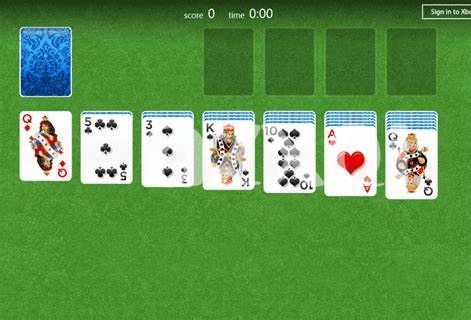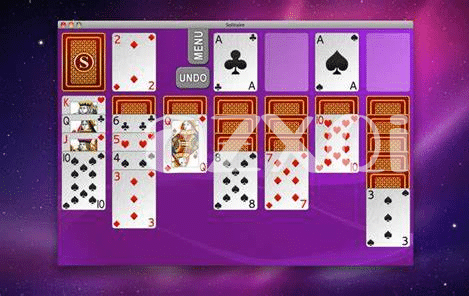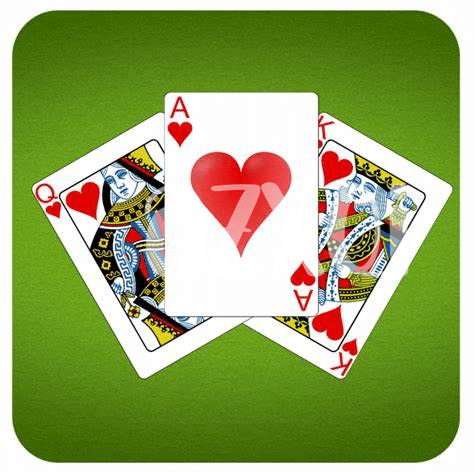A Quick Peek into Solitaire’s Royal Beginnings
Solitaire, the classic game that has captivated millions, began its journey in the 18th century, originating from a mix of card games played in Europe. It was believed to be a form of entertainment for French aristocrats, a way to pass the time in royal courts. The game, originally called “Patience,” mirrored the social intrigues and strategic planning of courtly life. As it spread across the globe, its simplicity and the solitary nature of gameplay made it a beloved pastime. This game of arranging cards in a specific order, while following certain rules, has evolved but its essence remains a testament to its regal roots 🏰♠️♥️.
| Era | Highlight |
|—————-|———————————–|
| 18th Century | Origin in French aristocracy |
| Spread Globally| Beloved for its simplicity and strategy |
From Physical Decks to the First Computer Versions
Solitaire has always had this regal aura, journeying from the hands of kings and common folk alike into the digital realm. Imagine shuffling through a deck of cards, the click and clatter of them laying out in neat rows, now transformed into the silent, swift movements of pixels on a screen. The transition wasn’t just a leap; it was a revolution. Cards became code, and solitaire, a game bound by physical decks, was reborn in the glowing screens of early computers.
As technology progressed, so did the game’s evolution. By embedding itself in the fabric of digital leisure, solitaire not only survived the jump from tangible to virtual but also thrived. It became a comforting, familiar pastime for those navigating the new and often bewildering landscape of personal computing. For a deeper dive into maximizing productivity on your digital devices, including the latest in app developments, check out https://iosbestapps.com/migrating-to-ios-wallet-tips-for-a-smooth-transition. This transition marks a pivotal chapter in the game’s lengthy saga, showing how adaptability drives the enduring popularity of solitaire.
How Solitaire Became a Staple on Early Computers
Back in the day, getting your hands on a computer was quite the treat, and finding games to play on it was even better. Imagine the joy when Microsoft decided to include Solitaire in Windows! This wasn’t just any game – it was a clever move. By integrating Solitaire, Microsoft wasn’t just adding a fun pastime; they were subtly teaching users how to drag and drop with a mouse 🖱️. People were learning, although they might not have realized it, getting better at navigating their new digital environments.
Solitaire quickly became more than a teaching tool; it turned into a beloved companion for many. Whether you were taking a break at work, or just spending some downtime at home, Solitaire was there for you. Its simplicity and ease of access made it a go-to 🌟. Plus, it didn’t require the latest hardware, making it accessible to everyone. This universal appeal helped cement its place in the hearts of early computer users and ensured its longevity in the digital world.
The Leap into Mobile and Online Gaming Realms
As technology galloped forward, so did the ways we play our beloved Solitaire. Transitioning from physical decks to shimmering screens wasn’t just a change of platform; it was a revolution in accessibility and variety. Suddenly, with the advent of the internet and mobile phones, Solitaire wasn’t just a game you played with cards spread out on your kitchen table. It became something you could dive into anywhere, anytime – on a break at work, during a commute, or while waiting in line. This digital transformation made Solitaire a truly global pastime, connecting players from different corners of the world through online tournaments and leaderboards. 🌎📱
What’s fascinating is how seamlessly Solitaire made its way into our daily digital life. For example, finding a game is as easy as exploring a macbook edge app, showcasing how integrated the game has become with our everyday tech. This era also marks a significant shift in how games are developed, distributed, and enjoyed, with app stores brimming with countless Solitaire variants – from the traditional Klondike to more modern twists. The game’s essence remained the same, but the experiences became richer, more interactive, and, dare we say, more addictive. 📲💡
Solitaire in the Smartphone Era: Apps Take over
When smartphones hit the scene, they changed the game for many classic pastimes, including our beloved card game. 📱 Suddenly, with a tap and a swipe, solitaire was no longer confined to a physical deck or a bulky computer. These apps brought not just traditional solitaire, but a plethora of variations—Spider, Freecell, Pyramid, you name it! Players now had a buffet of options right at their fingertips, anytime, anywhere. The convenience and accessibility of solitaire apps reignited passion for the game, drawing in new players and offering veterans fresh challenges. This shift wasn’t just about playing solitaire; it was about connecting with a global community of enthusiasts, sharing scores, and competing on leaderboards. 🌍🏆
| Feature | Benefit |
|---|---|
| Variety of games | Keeps the gameplay fresh and engaging |
| Global leaderboards | Fosters a sense of community and competition |
| Accessibility | Play anytime, anywhere |
The Future of Solitaire: Trends and Predictions
As we look ahead, the game of Solitaire is set to weave even more magic into our digital lives 😊. With technology zipping forward, we’re glimpsing a future where Solitaire games could become even more interactive and personal. Picture this: games that learn from your playing style and adapt to challenge you just the right amount, keeping things exciting 🎮. Imagine also the blend of virtual reality, where you could deal cards in a 3D space, making you feel like you’re right inside the game! Plus, there’s talk about integrating Solitaire into social experiences, connecting players across the globe for friendly matches or tournaments. And for those always on the move, the convenience of playing on smartphones continues with neat features tucked into familiar apps like the ipad talkie app in your iOS wallet. The aim is to keep the game fresh, engaging, and accessible anywhere, anytime, keeping us hooked and maybe even bringing new folks into the Solitaire fold. With all these exciting trends and predictions, it’s clear the journey of Solitaire is far from over; it’s just dealing out its next hand.





